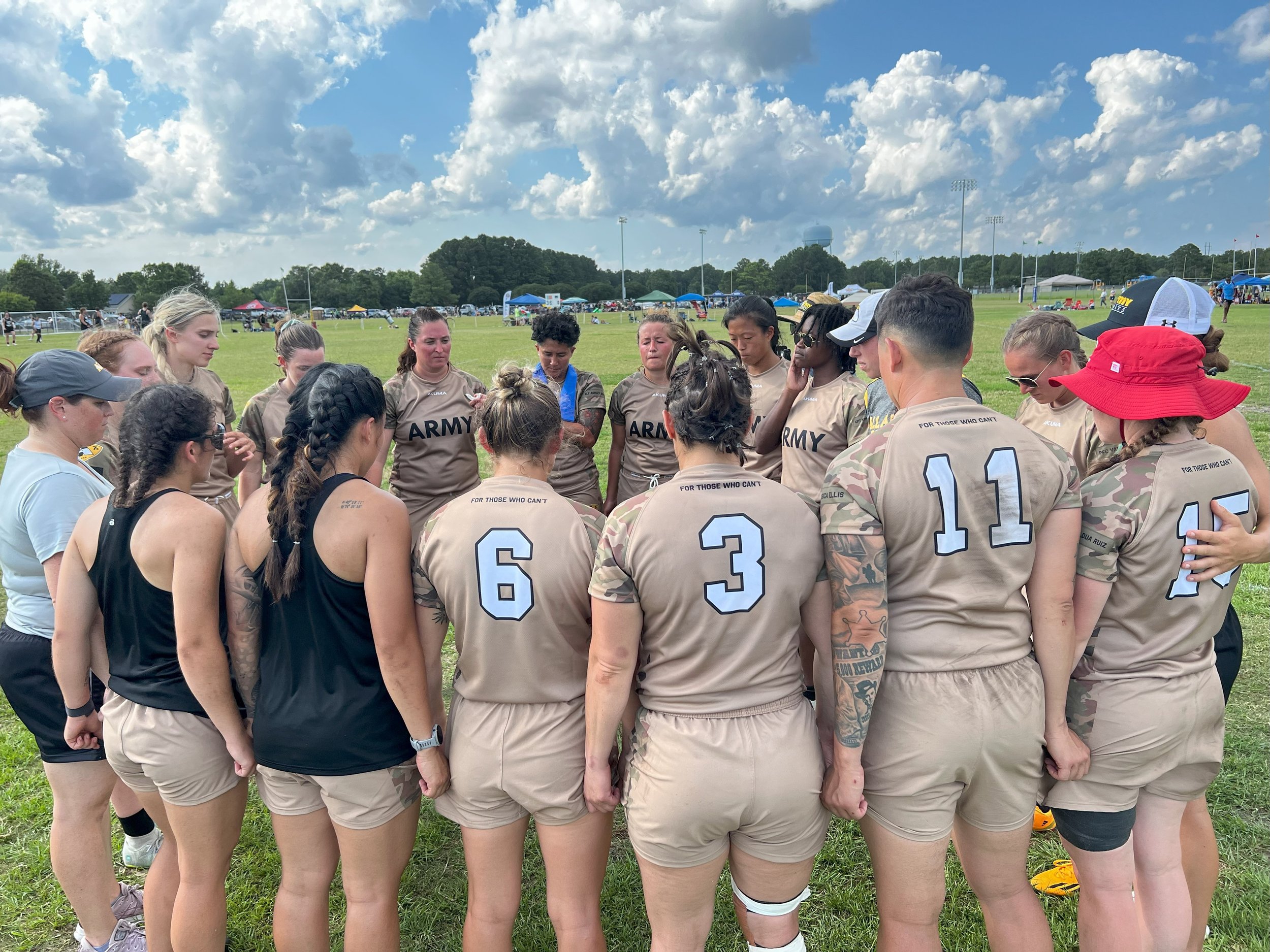What is Sport Psychology and Mental Skills?
US Army All WWhoomen’s Rugby Team breathing before a match.
Sport Psychology, what is it?
According to the APA (American Psychological Association), sport psychology is “a proficiency that uses psychological knowledge to address optimal performance and well-being of athletes, developmental and social aspects of sports participation and systemic issues associated with sports settings and organizations. Interventions are designed to help athletes and their support systems from a wide array of settings, levels of competitions, ages, ranging from youth recreation participating to professional and Olympic athletes to master’s level performers.
So, what does that mean?
Practitioners, like myself, of Sport Psychology teach, coach and mentor skills that are designed to increase confidence, motivation, effort and therefore performance. We add to the physical skills you are already doing to enhance performance in sport to make you a well rounded, unshakeable performer.
Sport psychology takes knowledge from many fields, such as psychology (CBT, ACT, DBT, etc), exercise science, ethics and the physical therapy realm to integrate the best skills possible at the best possible time.
Who is it for?
Despite the name “Sport Psychology”, these skills can be utilized by athletes, musicians, performing arts, coaches, parents, physical therapists, AT’s, doctors, business people and anyone else who performs in anyway and wants to become a better version of themselves. These are really life skills that should be taught to everyone, starting at a young age. However, I specifically work with CrossFit, endurance and functional fitness athletes.
I identify as all of those things and know first hand how much the mental skills can aid in performance, but also my perception of how the performance went. We tend to be very critical of ourselves and therefore do not always see a situation for what it truly is, in an objective manner. These skills allow you to take a more objective look at what your performance was.
The Mental Skills
I believe that there are different categories for the skills I teach to athletes and performers alike:
Cognitive Skills
These include things like Value and goal setting/achieving; self-talk and self-awareness; self-regulation; confidence building; energy adaptation; attention regulation and motivation.
These skills mostly take place in your own head or with yourself. Aside from guidance from your mental skills coach, you don’t have to interact with anyone else to achieve progress here.
Leadership Development; Culture Building
the foundation of these do start with the individual and their mission/goals/vision. However, the affects trickle down to who they are leading/surrounding themselves with. The leader they become and the culture they build influences everyone else around them.
Communication
Having difficult conversations; providing feedback (the do more of and improves); team building; different ways of communication that do not always involve speaking.
The performer can improve on the way they deliver their message, but communication is at the very least a two-way street. Other people are always involved and therefore must be aware of these skills as well.
Want to find out more?
Sign up for my newsletter and get even more information about mental skills and how they can be used in sport.


